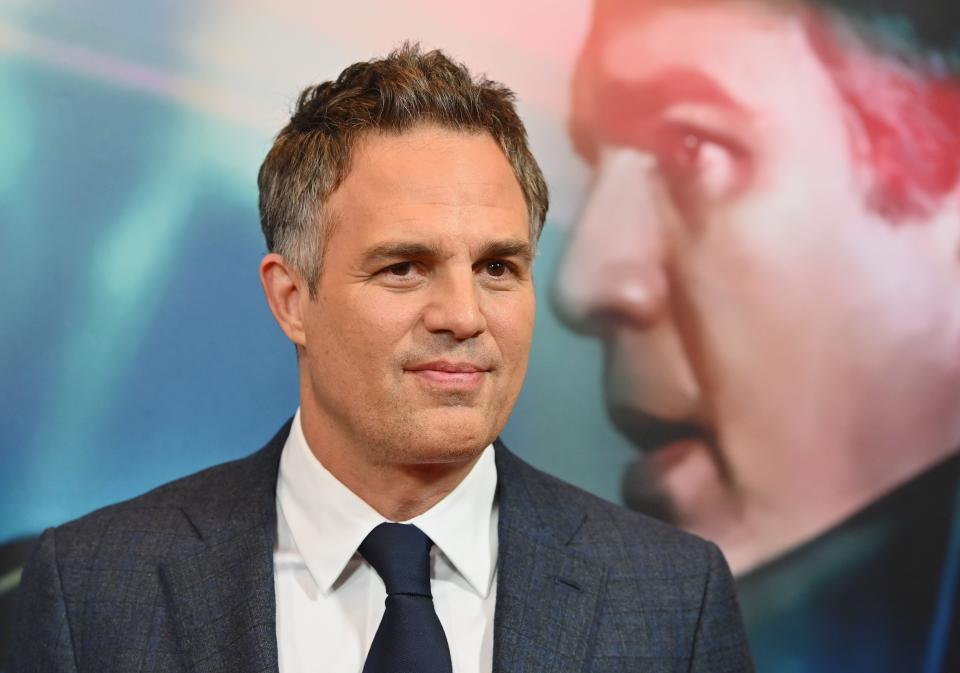Mark Ruffalo takes on 'corporate criminality' in 'Dark Waters,' his new whistleblower film
Mark Ruffalo was shocked.
Apart from being an Oscar-nominated actor best known for playing the Hulk in the Marvel Cinematic Universe, Ruffalo is also an environmental activist; he co-founded Water Defense in 2011 to raise awareness about the impact energy extraction has on water and public health.
And "The Lawyer Who Became DuPont's Worst Nightmare" had hit him hard. Nathaniel Rich's 2016 report for New York Times Magazine chronicled attorney Rob Bilott's fight to expose impact of the DuPont chemical company's release of PFOA, or perfluorooctanoic acid, which it had pumped as powder into the Ohio River near a West Virginia facility for decades, according to Rich's reporting. PFOA is a compound used in the manufacture of Teflon.
"You already have PFOA in your blood," Rich wrote. "It is in your parents’ blood, your children’s blood, your lover’s blood. How did it get there? Through the air, through your diet, through your use of nonstick cookware, through your umbilical cord. Or you might have drunk tainted water."

Scientists, according to Rich's reporting, found a ‘‘probable link’’ between PFOA and ailments including kidney, testicular and thyroid cancers, as well as high cholesterol, preeclampsia and ulcerative colitis.
“I was just floored," says Ruffalo. "It’s like the biggest corporate criminality, spanning 50 years, no accountability, and no one knew about it."
Ruffalo is working to change that with "Dark Waters" (in select theaters Friday before expanding Nov. 29 and showing nationwide Dec. 6), which he produced.
He also stars as Bilott, a environmental corporate defense attorney who spent years on PFOA as the work took its toll on his health and career.
"He saw the world as a jury of his peers," Ruffalo says of Bilott. "And (he believed that) once he laid out enough evidence and it was compelling enough, that they would decide to do the right thing. That’s how he handled everything, and it’s that kind of dispassionate, unemotional, empirical sort of one foot in front of the other until we get to where we need to be that was his ethos.
"As an actor, you want the big, dramatic moments. You want the juicy scenes. You want the moment where our hero gets to confront the bad guy and take him down, but that’s just not the nature of Rob and that’s not the nature of the story."
Tim Robbins co-stars as Tom Terp, Bilott's supervising partner at the Cincinnati law firm Taft Stettinius and Hollister LLP, who provides Bilott with crucial support in contrast to the firm's history of representing chemical companies.
“That’s what spoke to me," says Robbins. "The man whose law firm represents chemical companies (takes) on a case that is holding a chemical company responsible for polluting the environment. This is not their wheelhouse, right?"
DuPont and Chemours, a former DuPont unit that spun off into its own company in 2015, arrived at a $670.7 million settlement to settle 3,550 lawsuits related to the release of PFOA in 2017.
Terp and Bilott could, Robbins says, serve as guides for future change.
"It’s not like they’re your liberal reformers or anything, it’s people who go outside their own corporate culture to pursue something based on morality, based on right and wrong and not on profit margin," he says. "And quite frankly, it’s going to be up to people like Tom Terp to realize that morality in themselves and take risks and perhaps compromise their position of power or their livelihood to do the right thing.”

Director Todd Haynes' film is firmly in the whistleblower cinema tradition that includes "All The President's Men" (1976), "The Post" (2017) and "Erin Brockovich" (2000).
But it also has plenty in common with Ruffalo's "Spotlight" (2015), which won best picture and earned Ruffalo a best supporting actor nomination. Both films are non-sensationalist, methodical examination of all of the work – legal in the case of "Dark Waters," journalistic in "Spotlight" – that goes into uncovering the truth.
"Dark Waters," with its exposure of DuPont practices, also serves as an inadvertent companion piece to "Foxcatcher." That 2014 film starred Ruffalo as Olympic wrestler Dave Schultz, who was murdered in 1996 by chemical empire heir John du Pont.
Taken together, "Dark Waters" and "Foxcatcher" chillingly speak to the free reign our society has afforded powerful corporations and families.
“It is a corporate elite in America that basically because of economic reasons are given free hand to pollute, to dominate, to run amok," Ruffalo says. "Whether it’s John du Pont and his delusions of grandeur that came from a lifetime of privilege and money or it’s DuPont as a corporate entity who was a driving economic factor in American business.
"If all we value is the GDP of a country as a value of its health or well-being, then you’re going to have a lot more stories like the PFOA story and a lot more companies like DuPont who knowingly and willingly poisoned the world for pure profit and the almighty dollar.”
This article originally appeared on Asbury Park Press: 'Dark Waters': Mark Ruffalo blows whistle on 'corporate criminality'

